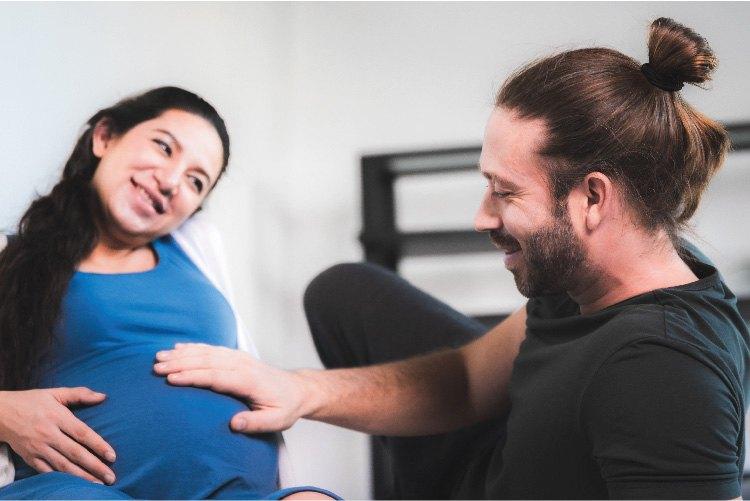Terri A. Ammirati, LCPC
Couples & Marriage Therapy.
Prospective clients, as well as friends and family, often ask me if a little rough patch in their relationship requires professional help or if they can and should work out their problems on their own.
I usually ask them this: Do you ignore small fires in your home and only call 911 when your house is about to burn to the ground?
Just as we are quick to call the fire department, we should call for help early, rather than let hotspots get out of control.
We should also take a step further. Like how we teach our family fire safety, we must proactively protect our relationship by learning crucial relational skills and improving our emotional intelligence.
While my response may seem self-serving, since I am a couples counselor, trust me when I tell you it’s not.
Case Studies
Consider these three couples:
Mike and Jeannette called for couples counseling. Married for seven years, they stated that it’s been hard for them to “communicate”. When they disagree on certain issues, they both do not feel heard. For the most part, they get along “pretty good,” but when certain disagreements or issues come up, they stated they feel like they go around and round and never get anywhere on these issues.
Rick and Nancy asked for the first available appointment. They wanted to start counseling as soon as possible. In our first session, Nancy said, “It’s been a bad year for us and we just can’t seem to bring up anything without getting into some disagreement.” Rick stated, “I can’t do anything right. I have tried and don’t know what else I can do.” When asked if this all started occurring as the pandemic unfolded, they responded: “Well, no, We have had these similar problems for years. Things have just gotten “really bad” with the events over the past year.”
When I first met John and Susan, Susan spoke most of the time, John was quiet. They had dated for four years and lived together for three. Most recently, John had an affair. Susan said it was not the first time he committed a betrayal. They both wanted to work on the relationship.
What do all three have in common? For all three situations, something was not “right” in their relationships long before they called me.
They should have sought help much earlier, and avoided the pain and heartache they were feeling. Wise, happy couples seek counseling before issues become deep-rooted and grow into a tangled mess.
THEY SHOULD HAVE sought help much earlier, and avoided the pain and heartache they were feeling.

Telltale Signs Your Relationship Needs Couples Counseling
Following are red flags signaling your union is heading into or is in trouble.
1. Constant Criticism.
You or your partner, or both of you, are constantly criticizing the other. The criticism is more than a complaint. It is personal and disrespectful.
2. Contemptuous is the Norm
Eye-rolls, sarcasm and ingratitude show up whenever you are interacting with each other. You view your partner as an enemy to your happiness or vice versa.
3. You're On the Defensive
One of both of you is not apt to accept the partner’s perspective or offer an apology.
4. You’re Emotionally Or Physically Distant.
You or your partner have withdrawn to avoid any kind of deep conversations or conflict. Arguments stop. You don’t spend time together anymore and your relationship is sexless. The closeness between the both of you is fading and a sense of loneliness has been slowly creeping in. This is called “drift,” and it is a common precursor to divorce.
5. Fantasizing About Escape.
You or your partner begin to think “What if?” and fantasize about greener pastures. What if we lived apart? What if I could be with so-and-so? What if I can never married him or her?
6. Negative Thoughts Override The Positive
The relationship experiences “overriding negative sentiment,” which is when one or both partners consistently sees the negative side of problems or each other. Are you giving greater weight to the negatives more than the positives? If so, then the negativity bias has likely become confirmation bias. The negative exchanges have crowded out the positive stuff, thereby “proving” your negative beliefs about your partner.
7. The 3 A’s
Adultery, addiction or abuse is present in the relationship. These are couples who need the help the most. They are dealing with serious issues that can cause emotional and physical harm to the partners and the family. Healing and recovery from these traumas will require the help of a skilled couples therapist.

Proactive Self-Care For Couples
Should couples seek counseling when the issues above arise? Definitely yes.
However, couples should seek couples counseling before those problems emerge. Research has shown that couples who seek help early have the best chance of lasting and thriving even during difficult times.
When I meet with a couple, we go through a detailed intake process. We assess the histories of the partners as individuals and as a couple. Most times, we are able to pinpoint when problems started. Usually, these issues coincide with a change or transition in their lives.
These transitions include:
- Getting engaged
- Blending families (Re-marrying)
- Having a baby
- Raising teenagers
- Caring for eldering parents
- Moving
- Changing jobs or financial situations
- Coping with death
- Dealing with a health problem
- Becoming empty-nesters
I advise family and friends to seek private relationship counseling or attend a reputable couples workshop whenever they are experiencing any of the above life-changing events. This is for their own benefit.
Getting help early — even when the relationship is fulfilling and happy — averts disaster.
Life transitions can overwhelm even the strongest of marriages. Stress preoccupies our minds. The rituals of connection we have created, such as date night or bedtime routines, are disrupted. We become more irritable and quick to become emotionally flooded.

Preventing Damage To The Family
Studies from The Gottman Institute, the creator of a science-based couples therapy approach trusted by thousands of couples therapists worldwide, reveal the “masters” and “disasters” of relationships.
Data were drawn from studies that included more than 3,500 couples and spanned 45+ years. For the first time, relationship experts were able to scientifically quantify what couples do in stable happy marriages and what behaviors will lead to divorce.
Masters & Disasters
“Masters” of relationships did not necessarily do everything right all the time. But they knew how to make repairs, deepen their intimacy, create meaning in their lives — even through the rough times.
“Disasters” of relationships were partners who did not learn how to manage conflict or communicate effectively. They neglected their friendship — which, researchers learned, is the foundation for trust, commitment, gratitude, problem-solving, intimacy and shared dreams.
The difference between the two groups was that the masters learned a combination of tools, skills and behaviors to keep their relationships on track.
For the disasters, they were ignorant of “fire hazards,” which turned into fiery, uncontrollable raging blazes.
This is why I say, “Learn and master relationship skills — even when the relationship is healthy and happy.”
Know the warning signs and proactively keep your family safe. Prevent any damage that may be irreversible. Couples should not wait until they are in a desperate state before they seek professional help.
What Happens When Issues Are Prolonged?
According to Dr. John Gottman, founder of The Gottman Institute, unhappy couples wait an average of six years before seeking couples counseling. This is six years of chronic conflict, resentment, criticism, contempt, defensiveness, drift, fantasies and negative bias. Even worse, it may be six years of the 3 A’s.
This is unfortunate because timing is everything.
The effectiveness of couples and marriage counseling is directly related to the motivation of the partners. Motivation can be lacking when problems are too ingrained, and past hurts have been festered for too long. Their quality of the interactions has burned to ashes and rebuilding the house will take time, work and herculean motivation.
Relationships Take Work
Marriage remains a risky business. According to the statistics by World Population Review, (as of 2019) 50% of all marriages end in divorce. If you get married between 20 and 25 years old, you have a 60% chance of your marriage ending in divorce. Second marriages have a 60% chance of divorce and third marriages have a 73%.
Those statistics confirm that it’s always a good time to seek professional guidance to help you learn, and re-learn, the behaviors and skills for relationship happiness.

Where To Get Help
There are numerous resources available for relationship help. Depending on your circumstances and stage in your relationship, any of the following are good choices:
1. Couples Therapist
Seek out a professionally trained therapist who specializes in couples therapy. Couples therapists have the specialized and foundational education and experience to effectively diagnose and treat couples. After all, if you needed medical help with the joints in your knee, you would want to be treated by a specialist — an orthopedic knee specialist.
It is no different in the area of couples counseling. Certified Gottman Therapists are trained in The Gottman Method.
Many Gottman counselors are also schooled in other types of approaches and are able to combine the best treatment plan for your relationship.
2. Couples Workshop Or Retreat
Attend a couples workshop, particularly the Gottman’s Art and Science of Love event. This workshop unpacks four decades of Gottman research on relationships. No other couples workshop or retreat is based on the amount of data as The Art and Science of Love.
Couples with a range of situations attend this workshop: from newlyweds to retirees, from those coping with trauma to those wanting a romantic getaway, and everything in between. The Gottman couples workshop is the go-to for couples who want to seek the best information and researched-based tools that will improve the quality of your interactions with one another.
3. DIY
If you want a do-it-yourself approach, seek information from leading couples researchers. The Gottman Institute has a ton of resources for those who want to learn what tools they need to strengthen their marriages. Online resources include the Marriage Minute, the Gottman Blog and Gottman Connect. I also recommend books written by Dr. Gottman, such as “The Seven Principles for Making Marriage Work.”
4. Emulate Happy Couples
Find support from couples in stable marriages. Very often, couples who feel distressed or fall into a negative feedback loop will, unfortunately, isolate themselves. Trusted friends and family members can provide examples of how to communicate, court and manage conflict. Emulate the best qualities of their relationship.
However, do not share things with your friends and family that are personal and do not ask for advice. Sometimes, people who are not experts in counseling or relationships may provide you with advice that does more harm than good. They can be biased, and not understanding the complexities in your relationship that are personal to you.
PROTECT AND STRENGTHEN your home by learning and mastering foundational relationship skills.
Never Wait
Whatever you do – never wait. Waiting and hoping for things to get better is never the answer.
Consider the three couples and the issues they needed counseling for:
- Mike and Jeannette — lack of communication skills/ tools
- Rick and Nancy — chronic conflict exacerbated by the isolation of the pandemic
- John and Susan — betrayals
I am certain these issues would have been avoided if they had invested in their relationship earlier. Premarital counseling, a couples workshop or marriage therapy would have saved them from heartache and suffering.
Don’t ignore warning signs. Don’t allow hotspots to grow and reduce your love to ashes. Protect and strengthen your home by learning and mastering foundational relationship skills.

Don’t hesitate to reach out to Ammirati Counseling to ask and inquire about support services that you can receive to help with overcoming feelings of depression, loneliness, stress or anxiety.
Ammirati Counseling is a boutique counseling group with an office in Bannockburnn serving Chicago. Therapists also offer private therapy via remote online. They provide comprehensive care to children, teens, adults, couples, families, and the LGBTQ community.
Terri specializes in empowering clients to strengthen their relationships. She works with all aspects of relational distress and provides solution-focused therapy.
- Gottman Couples Therapy: Key Principles And What You Can Do Now - June 17, 2024
- Healing From Trauma: 3 Ways To Take Control - June 3, 2024
- Signs & Symptoms of Depression In Men - May 20, 2024




